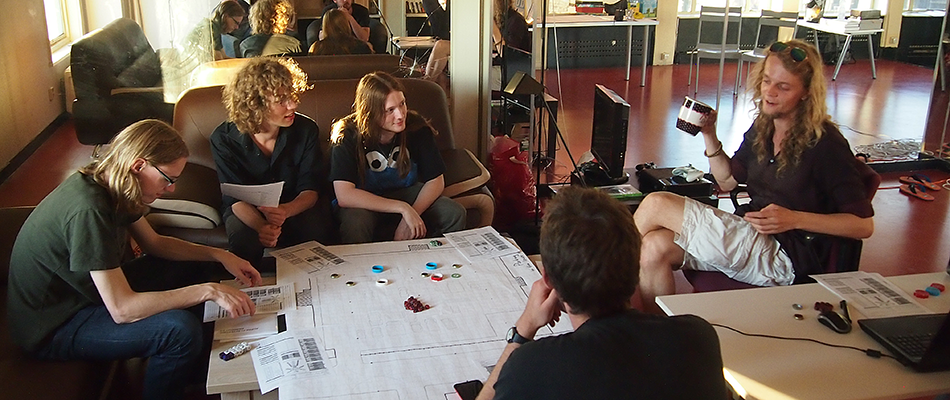Current post: This is not a test.

From there on out our goal was straightforward: To find out if, and to what degree, our system worked.
Since our start in November 2015, we have been working on developing a set of game mechanics that we felt would get the job done.
But that all changed…
When the playtesters attacked.
Last September, we went into our first round of playtesting with Cesco Homminga at the helm as the Guide, more commonly known as the Game Master. We gathered a group of playtesters with a wide variety of experience and playstyles. Ranging from the “”I think I know what hit points are and I just want to mess around a little”-type to the “I started playing when Dungeons & Dragons first came out and I’m going to try and use the rules to get the best possible stats”-type. From there on out our goal was straightforward: To find out if, and to what degree, our system worked.
That initial round of testing gave us a lot of valuable feedback and insights, and we used them extensively to improve and, at times, completely revamp our mechanics.
One of the unexpected and positive things that became clear through testing was the versatility of the traditional archetypes of roleplaying. In most Roleplaying Games these archetypes remain fairly consistent. The “Tank” soaks the majority of the incoming damage with their high armor and/or abundant health pool. The “DPS” does a lot of damage but trades their durability for it. Lastly, the “Support” heals or otherwise gives their allies a leg up and makes the enemies lives harder by afflicting them with conditions.
Interestingly enough, we noticed, over the course of multiple playtests, that these archetypes tended to be fluid instead. In a standard combat encounter the hacker’s primary role was that of support; by hacking security cameras and droids. However, when the hacker has to hack into a well-protected mainframe, they would be locked into a virtual confrontation where they were now the “Tank”, while the combat oriented characters were running interference, giving the hacker the time they needed, and thus becoming “Support”, effectively. Simultaneously, if the only character left to deal with the IT specialist ruining the hacker’s fun is the charismatic smooth talker, then that character became the “DPS” all of a sudden.
This wasn’t a purposefully designed mechanism, but rather a dynamic one that emerged on its own due to the versatility and malleability of the system. And we are quite proud of that. None of this means that our work is now done, as the first round of testing pointed out more than enough flaws in the first draft. We have spent the past weeks adjusting the system, taking in the testers’ feedback. Now we are ready to start our second round of alpha testing and our hope is that we can move towards open beta testing after that.
We will keep you informed on that and other future developments!